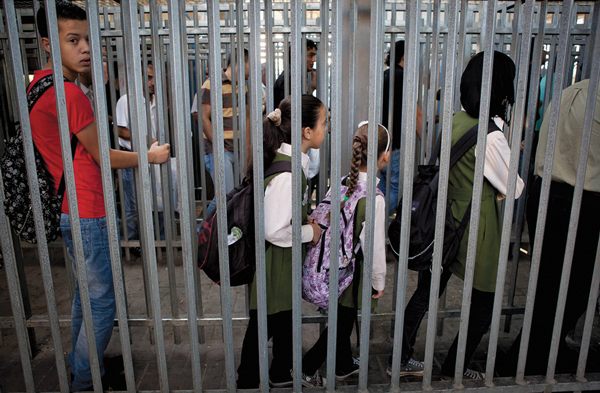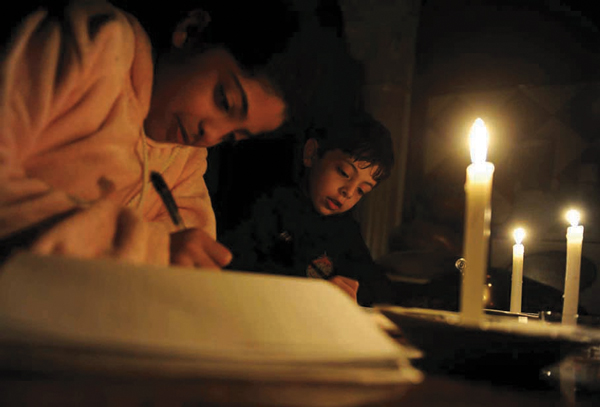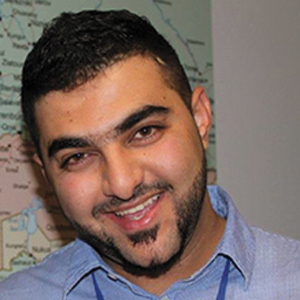
College is supposedly one of the best phases in our lives, not only due to the amount of knowledge we receive, but also because it is the space where we become independent for the first time and are able to explore all aspects of ourselves. The college experience in Palestine, however, is different. It is a fight for a basic human right in the midst of the absurdity of the Israeli occupation.
The right to education is a fundamental human right and basic freedom; it is the responsibility of governments, organizations, and individuals to defend it and work towards its realization. As a child growing up under occupation, I had various abnormal daily experiences that seemed completely standard at the time. Not until living in the United States and the United Arab Emirates and going back to Palestine to pursue a bachelor’s at Birzeit University did I realize that I was living under an illegal Israeli occupation that violates the simplest human rights of individuals on a daily basis.
During my college experience in Palestine from 2007 to 2011, we students were directly affected by several incidents during our course of study. Birzeit University does not offer on-campus housing, so students live off campus either with their families or in privately owned dormitories. On multiple occasions, we found ourselves stranded, either under curfew when we were not allowed to leave our homes, or surprised by checkpoints on the way to college, preventing us from exercising our right to education. This continues as a result of the Israeli occupation’s methodical barricade to Palestinian education in the West Bank and Gaza which not only violates basic human rights but also destroys basic infrastructure. Due to frequent closures of cities, hundreds of military roadblocks, and the construction of the illegal apartheid Separation Wall, thousands of students and teachers are prevented from getting to their schools, colleges, and universities.
♦ The Palestinian education system struggles daily as a result of the Israeli occupation practices in the West Bank. Many students and teachers must overcome numerous challenges in order to reach their educational institutions, yet they continue to exercise their right to education and recognize its potential in acquiring peace.
As a Palestinian American who just finished his master’s degree in the United States, I now better understand the difference between being a student in Palestine and a student in the United States. I realize that a 20-minute commute to class that takes 5 hours is not okay. Meeting your professor and classmates at a public library in Ramallah because we could not get to class is not okay. Leaving your home in the morning and not knowing what to expect, or coming home covered in mud from crossing checkpoints to get to campus is not okay. I am bombarded with values, stories, and theories that supposedly represent where I come from and what my college experience has been like, but in reality the experience of college life in Palestine is like being in a prison with no possible escape route.

Constantly affected by international laws and public policy, the Palestinian-Israeli conflict remains one of the strongest topics in today’s politics and leadership with no signs of justice. Despite the lack of objective media attention in the West Bank and Gaza to deliver an authentic image, Palestinians remain resilient every single day notwithstanding the lack of support by the international community. In spite of the suffocating Israeli occupation practices, Palestinians rank high in world literacy averages and choose education as one of the most peaceful tools to resist occupation. The human development study conducted by The United Nations Development Programme (UNDP) in 2014 shows that 96.3 percent of the Palestinian population is literate.i
With minimal resources, we Palestinians continue to build and structure our current education system through achieving the highest levels of schooling abroad and then returning to Palestine to apply our academic knowledge and assist in developing our society. On the way towards liberation, Palestinians will continue to do whatever possible to access education. As the great Edward Said put it, “We cannot fight for our rights and our history as well as the future until we are armed with weapons of criticism and dedicated consciousness.”
» Mohamad Allan is a Palestinian American who works in healthcare management with a specialization in emergency medical transportation. He holds a bachelor’s degree in business administration from Birzeit University and a master’s degree in public administration from Keller Graduate School of Management, Philadelphia, Pennsylvania. Mr. Allan is currently working on obtaining his PhD in public administration with a research focus on corporate social responsibility.
i. United Nations (2014). Development for Empowerment: The 2014 Palestine Human Development Report. UNDP, available at http://www.ps.undp.org/content/dam/papp/docs/Publications/UNDP-papp-research-PHDR2015Education.pdf.


